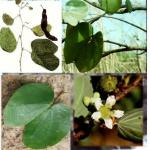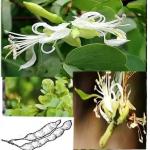THYME BENEFITS OF THTHYME HISTORY ACTIVE PRINCIPLES OF THYME BENEFITS OF THYMEYME PLANT TO FIGHT INFECTIONS
THYM BENEFITS
Scientific name of THYM: Thymus vulgaris
Common names of thyme: common thyme, vulgar thyme, frigoule, farigoule, barigoule, pote
Botanical classification: Lamiaceae
Forms and preparations: Infusions, tinctures, essential oils, syrups, ointments, tea.
There are more than 300 varieties of Thyme used in tea, cream or as a spice.
HISTORY AND ACTIVE PRINCIPLES OF THYME
Thyme is a well-known aromatic medicinal plant, which is found in most gardens in Western and Southern Europe. Very common in the wild and recognisable by its powerful aroma, it has very small white or pink flowers in dense clusters of up to 40 cm high. Particularly renowned for its powerful protective properties, it has been used since antiquity to fight infections, revitalise and strengthen immunity.
The Greeks and Romans used to burn it to purify the air inside, and liked to put it in their baths before going into battle. Galen, one of the main founders of European medicine, said that "thyme is suitable for cleansing the noble parts of the body and for throwing out all the fluids from the chest".
The components of thyme are quite numerous, especially in its essential oils: it contains thymol, a powerful anti-infective, as well as other phenols (geraniol, linalool, carvacrol), but also flavonoids, which give the plants their antioxidant properties.
There are more than 300 different varieties of thyme, including common thyme, alpine thyme and lemon thyme. Although their medicinal properties differ slightly from one variety to another, what they all have in common is their health and beauty benefits, thanks to five main properties that we will see together.
Brief overview of the components of thyme
Thymol: a powerful anti-infectious ;
Geraniol;
Linalool;
Carvacrol, a natural tranquilizer;
Flavonoids, giving plants their antioxidant properties;
DESCRIPTION OF THE BENEFITS OF THYME
The common thyme (Thymus vulgaris L.) is a small shrub that grows in dry, rocky places. It is an aromatic plant that belongs to the Lamiaceae family, like rosemary or lavender. Its leaves are linear and its small flowers range from pink to whitish. The Egyptians used it to embalm their dead, the Greeks used it to improve the flavour of their dishes. Among the Romans, it gave courage to soldiers before a battle.
In the Middle Ages, the German abbess Hildegarde de Bingen recommended it in the treatment of respiratory distress.
Indeed, thyme contains constituents that make it an excellent pulmonary antiseptic and a good expectorant (bronchial fluidifier). It is used in cases of difficult digestion, as it is antispasmodic and helps to drain the liver. It is also a remarkable tonic.
The essential oil of its flowering aerial parts has different chemotypes, or chemical types: thyme with thymol, geraniol, thujanol. It can therefore be used in various indications, in adults and children: in OLR, pulmonary, digestive, urinary, and rheumatic pain infections.
Thyme has been known since the dawn of time and is a plant commonly used in Mediterranean cuisine. But do you know all its properties? A real concentrate of health benefits, thyme fights respiratory infections and winter fatigue. It also helps with digestive comfort and has extraordinary health and beauty benefits. Let's discover together the uses it offers, and how to make your infusions at home.
SUMMARY BENEFITS OF THYME
Antiseptic virtues. Rich in phenols, it has antiseptic, antibiotic and antibacterial virtues.
To breathe better ...
To fight colds. ...
Urinary tract infections. ...
Fill up with vitamins. ...
Fill up with minerals. ...
Beauty tip ...
Against rheumatism.
Fight against high blood pressure
Increases natural defences
Has antiseptic, antibiotic, antiviral, anti-fungal and antibacterial properties.
Fight against cancer and free radicals
Bronchitis, asthma, flu, laryngitis, cough, sinusitis, whooping cough.
Fluidifies the blood
Fight against mouth ulcers
Fighting anaemia
Fight against vitamin deficiencies
Fight against AIDS
Fights plaque and helps prevent cavities
Fight against bleeding and menstrual bleeding
A RECIPE BASED ON THYME
Note: It is consumed fresh as an herbal tea, dried, or as essential oils (3 drops in a cup of hot water).
For a fresh thyme tea
10 g of fresh thyme to be infused in 1 litre of boiling water ;
Leave to stand for 10 minutes ;
Filter and add your magic ingredients (spoonful of honey, lemon...)
For a dried thyme tea
Brew 8 teaspoons of dried thyme in a litre of water.
Drink a hot cup twice a day.
Read more about preparation at the end of the page.
THE GREAT PROPERTIES OF THYME INFUSION
A powerful stimulant for the immune system
Thyme is the protective plant for immunity par excellence. Naturally rich in phenols, it has major antiseptic, antibiotic and antibacterial virtues. It is particularly effective against respiratory tract ailments that are frequent in winter, linked to colds and infections, and its action against bronchitis has been demonstrated in clinical studies.
It is frequently used in herbal teas to help fight colds, and in gargle to soothe sore throats and oral infections. Its expectorant properties also make it a great ally in the treatment of coughs: it thins and helps evacuate mucus from the respiratory tract, making breathing easier. Take advantage of its benefits in cases of bronchitis, asthma, flu, laryngitis, sinusitis or even more severe diseases such as whooping cough.
As we will see later on, its anti-infectious properties are not limited to the respiratory system: it stimulates and strengthens the immune system of the whole body.
Anti-oxidant properties
Thyme is an interesting source of flavonoids, compounds present in certain plants and known for their antioxidant power. It thus fights against the damage caused by free radicals, highly reactive molecules that are believed to be involved in the appearance of certain cancers and age-related diseases. It is one of the herbs richest in antioxidants, which is why it should be eaten regularly: think of it in the kitchen.
A defender of the uro-digestive system
For digestion, thyme is a plant that stimulates the appetite and relieves many ailments. Its carminative properties help to reduce gas, while the phenols it contains give it an antispasmodic action that relieves intestinal cramps. Thyme tea is therefore recommended in cases of difficult digestion, bloating or aerophagia. Its antiseptic and antiparasitic active ingredients also help to combat digestive disorders such as diarrhoea or intestinal worms.
With regard to urinary infections, thyme tea helps to fight cystitis, urethritis and prostatitis. It also helps to regulate the menstrual cycle.
Remark
Thyme, internally - Relieves symptoms of bronchopulmonary ailments (such as coughing) and the flu; stimulates digestion.
Thyme externally - Treats minor skin wounds and some skin conditions.
A source of essential minerals
Thyme is usually consumed as a seasoning and therefore in small quantities, while its health benefits are vast and often underestimated. Dehydrated thyme is an excellent source of iron, which is essential for the transport of oxygen and the formation of red blood cells in the blood. It also plays a role in the production of new cells, hormones and neurotransmitters. The amount used in a cup of thyme infusion provides about 20% of the recommended value.
Thyme tea is also an excellent source of vitamin K, which is necessary for the production of proteins that play a role in blood clotting and are also involved in bone formation. Two teaspoons of dried thyme thus provide 60% of the recommended daily value.
It is a good source of manganese, acting as a cofactor of several enzymes that facilitate a dozen different metabolic processes, and calcium, which contributes to the proper formation of bones and teeth and the maintenance of their health. Calcium also plays an essential role in the contraction of muscles, including the heart.
Finally, fresh thyme is also a source of vitamin C, which protects against infections, promotes the absorption of iron from plants and accelerates healing.
A choice beauty ally
Thanks to its antiseptic and healing properties, thyme infusion can be used externally to fight skin infections, heal wounds and soothe pimples and redness. Apply a compress soaked in the infusion to relieve sunburn, small wounds, scrapes and bruises. Its effectiveness is also recognised for the treatment of fungal infections, herpes and, more generally, for a whole range of skin conditions, including shingles.
For all oral and dental care, thyme infusion can be used as a mouthwash or gargle: it heals and maintains the health of teeth and gums, fights bad breath and cavities.
After removing make-up, replace your usual tonic with a cooled infusion for a purifying and invigorating effect.
To tone the whole body, pour a litre of thyme infusion into your bath. This helps to relieve rheumatism, arthritis and muscular pain. Finally, to relieve athlete's foot and ingrown toenails, soak your feet in a basin filled with the infusion.
THE VARIETIES OF THYME
Thyme comes in a large number of varieties, each with a slightly different taste than the others. In fact, there are more than 300 varieties of thyme. Unless you are an expert in the field, you may find it difficult to make your choice. To help you, here are three varieties of thyme that are delicious in herbal teas.
a- Common thyme
It is surely the most famous. Widely used in Provençal cuisine, it is notably found in the bouquet garni. It is generally used in savoury dishes but it is also very good in herbal tea.
b- Lemon thyme
As its name suggests, it is a lemon-flavoured thyme. Not surprisingly, it is therefore delicious as an herbal tea.
c- Orange thyme
Same principle, but we change citrus fruit! If you prefer the sweetness of the orange to the acidity of the lemon, turn to this type of thyme. It will give your herbal teas a delicious orange flavour.
Please discover the herbal tea 56
Please visit http://www.africbio.com
Please discover herbal tea 17, Herbal tea 18, Herbal tea 19
PROPERTIES AND THERAPEUTIC EFFECTS OF THYME
Thanks to its supply of vitamins, minerals and other nutrients, thyme can be a great help when it comes to combating various disorders that can affect your health and well-being. Among other things, it combats respiratory infections and winter fatigue. It also helps with digestive comfort and has extraordinary virtues for health and beauty.
Particularly renowned for its powerful protective properties, it has been used since ancient times to fight infections and revitalise and strengthen the immune system. It promotes breathing, fights sore throats, bronchitis and coughs. Its high iron content promotes the increase of haemoglobin in our blood. It is excellent for treating the problem of hyperhidrosis (excessive sweating of hands and feet) which affects thousands of people. It improves sleep and helps to fall asleep easily.
HOW TO CONSUME THYME?
Thyme can be consumed fresh, dried or directly in the form of essential oils, reserved for more severe ailments.
To make your herbal tea, infuse about 10 g of fresh thyme in 1 litre of boiling water. Leave to stand for 10 minutes, filter and add the juice of an organic lemon and two tablespoons of honey if necessary. If you prepare your infusion with dried thyme leaves, this corresponds to approximately 8 teaspoons. Drink your thyme infusion hot, as steam is effective against winter ailments. It is advisable to drink 3 to 4 cups of thyme infusion per day, but no more.
If it is fresh, thyme can easily replace morning tea or coffee. If you only have thyme essential oil, you can dilute 3 drops in a cup of hot water.
If you have a source of fresh thyme nearby, don't hesitate to harvest it and dry it. The ideal is to dry the branches in the sun and then lay them flat on paper or a fine trellis in a dry and airy place. When the thyme is dry, store it in a cool, dry place in a well-sealed tin or glass jar. For the less fortunate, we advise you to use dried thyme that is certified organic to avoid infusing all sorts of pesticides and chemicals that would have been sprayed on the thyme before taking it to the shop. If you opt for an essential oil, thyme linalol is particularly recommended, as it is both powerful and versatile, and less aggressive for the skin than thyme with thymol.
What are the common indications for thyme?
Thyme is commonly indicated in the treatment :
digestive disorders (difficult digestion, bloating, nausea, abdominal pain, flatulence) ;
cough, nasal congestion (colds) and respiratory problems (asthma, whooping cough, bronchitis, angina);
infections of bacterial or fungal origin (mycoses);
In case of skin diseases (acne, eczema, herpes, rosacea, scabies, shingles, chickenpox, AIDS);
To fight against caries, dental pain and oral diseases (mouth ulcers, gingivitis);
Small wounds, itching and insect bites.
Infections of all kinds and even AIDS
Note: Thyme contains thymol, a molecule that helps prevent thrombosis (blood clots) and cardiovascular disease.
CONTRAINDICATIONS TO THE CONSUMPTION OF THYME
If you do not suffer from any illness and are not taking any medication, thyme has no particular contraindications for you. You should only take care not to drink more than 3 or 4 cups of thyme infusion per day to avoid undesirable effects due to overconsumption.
Thyme infusions are not recommended if you are taking anticoagulant medication, if you suffer from diabetes or hypoglycaemia or if you are undergoing treatment for high blood pressure. In this case, ask your doctor for advice before taking large amounts of thyme.
Furthermore, the consumption of thyme is not recommended for people suffering from allergies to plants of the labiate family (mint, sage, rosemary, etc.) and for children under 6 years of age. During pregnancy and breastfeeding, women should also avoid consuming thyme tea as it could endanger their pregnancy.
Finally, never consume pure thyme essential oil orally, and only use it to dilute on the skin.
IN CONCLUSION
For example, thyme is one of the most powerful plants in phytotherapy to support the immune system, and is worth using on a daily basis. It is an all-purpose plant. Think of infusions in case of a cold, but also to integrate it as an herb in the kitchen, your body will say thank you! Did you find these tips useful? Feel free to share this article and let us know your tips.
Please discover the herbal tea 56
Please visit http://www.africbio.com
Add a comment








